
Syntagma: The Heartbeat of Athens
Syntagma, the beating heart of Athens, is a district that seamlessly blends ancient history with modern vibrancy. Its centerpiece, Syntagma Square, is a pivotal meeting point for locals and tourists alike. The square is dominated by the imposing Hellenic Parliament building, where you can witness the iconic Changing of the Guard ceremony, a spectacle of Greek tradition and discipline. Walk a few steps from the square and you will find yourself in a labyrinth of bustling streets filled with shops, cafes, and restaurants. Ermou Street, one of the city's main shopping avenues, offers a mix of international brands and local boutiques, perfect for a leisurely shopping spree. The nearby National Garden provides a serene escape with its lush greenery, winding paths, and small lakes, making it a perfect spot for a relaxing stroll. Syntagma is also a gateway to some of Athens' most significant historical sites. A short walk will take you to the Acropolis, an ancient citadel featuring iconic structures such as the Parthenon and the Erechtheion. For museum enthusiasts, the nearby Benaki Museum and the Museum of Cycladic Art offer rich collections of Greek art and artifacts. After a day of exploration, enjoy a meal at one of the many traditional tavernas, where you can savor authentic Greek cuisine under the shadow of history.
Local tips in Syntagma
- Visit early in the morning or late in the afternoon to avoid the midday crowds at Syntagma Square.
- Wear comfortable shoes as the area is best explored on foot and involves a fair amount of walking.
- Don't miss the Changing of the Guard ceremony in front of the Hellenic Parliament, which takes place every hour.
- Take a break at a café in Syntagma Square and enjoy people-watching, a favorite pastime of locals.
- Explore the National Garden for a peaceful retreat from the bustling city streets.
Syntagma: The Heartbeat of Athens
Syntagma, the beating heart of Athens, is a district that seamlessly blends ancient history with modern vibrancy. Its centerpiece, Syntagma Square, is a pivotal meeting point for locals and tourists alike. The square is dominated by the imposing Hellenic Parliament building, where you can witness the iconic Changing of the Guard ceremony, a spectacle of Greek tradition and discipline. Walk a few steps from the square and you will find yourself in a labyrinth of bustling streets filled with shops, cafes, and restaurants. Ermou Street, one of the city's main shopping avenues, offers a mix of international brands and local boutiques, perfect for a leisurely shopping spree. The nearby National Garden provides a serene escape with its lush greenery, winding paths, and small lakes, making it a perfect spot for a relaxing stroll. Syntagma is also a gateway to some of Athens' most significant historical sites. A short walk will take you to the Acropolis, an ancient citadel featuring iconic structures such as the Parthenon and the Erechtheion. For museum enthusiasts, the nearby Benaki Museum and the Museum of Cycladic Art offer rich collections of Greek art and artifacts. After a day of exploration, enjoy a meal at one of the many traditional tavernas, where you can savor authentic Greek cuisine under the shadow of history.
Iconic landmarks you can’t miss
Athens National Garden
Discover a royal legacy in Athens' National Garden: a green oasis with diverse flora, tranquil ponds, and historical echoes in the city center.
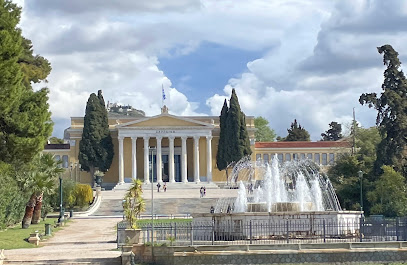
Syntagma Square
Experience the vibrant heart of Athens at Syntagma Square, a historic hub for politics, culture, and transportation, crowned by the Hellenic Parliament.
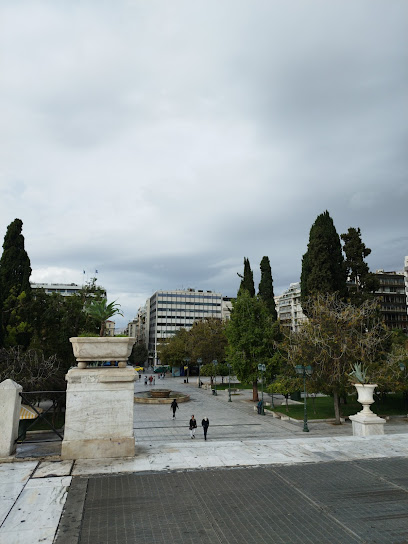
Monument to the Unknown Soldier
A solemn tribute to Greek soldiers, the Monument to the Unknown Soldier stands as a powerful symbol of remembrance and national pride in the heart of Athens.
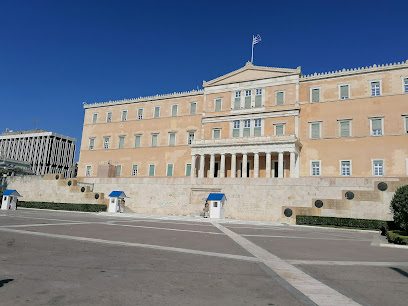
Greek Flag of Athens Acropolis
Witness the iconic Greek Flag atop the Acropolis, a symbol of Athenian history, culture, and breathtaking panoramic views of the city.
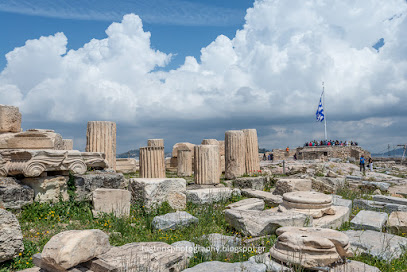
Statue of George Karaiskakis
Honoring a Greek War of Independence hero, this equestrian statue stands proudly in central Athens, near the National Garden.
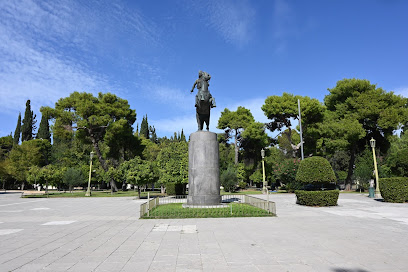
Roman Stoa
Explore the Roman Stoa in Athens, a historical landmark with stunning architecture and serene botanical beauty, offering a glimpse into ancient Roman commerce.
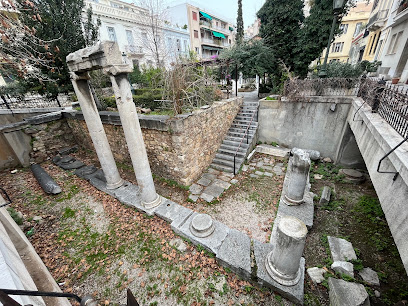
Area of Stenopos Kollytos
Discover Stenopos Kollytos in Athens: An ancient neighborhood frozen in time, revealing daily life in classical and Roman eras.
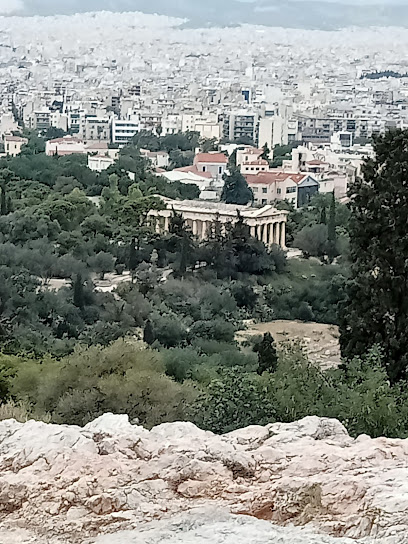
Late Roman tower wall foundations
Discover Athens' ancient Roman defenses: Explore the Late Roman tower wall foundations and connect with the city's layered history.
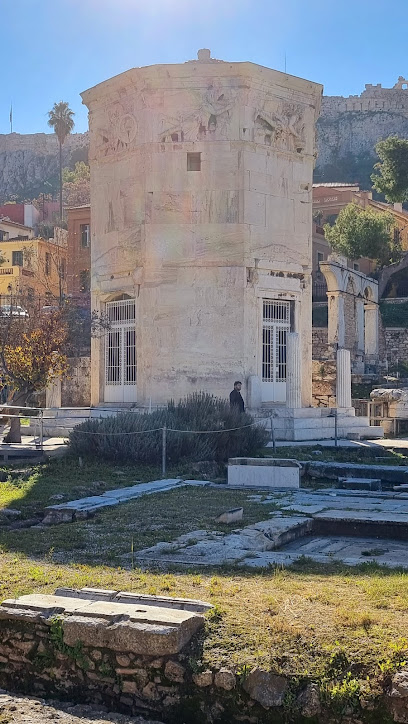
Mnimio Agnostou Stratioti
A solemn war memorial in Athens' Syntagma Square, guarded by the Evzones, honoring Greece's fallen soldiers.
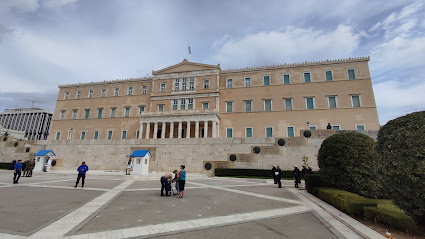
Plateia Syntagmatos
Experience the vibrant heart of Athens at Syntagma Square: history, culture, and modern life converge in this iconic landmark.
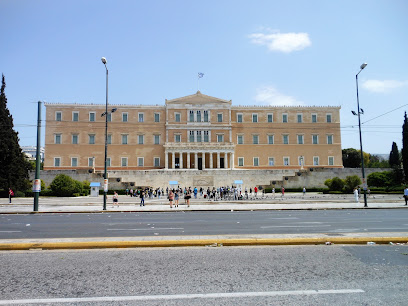
Unmissable attractions to see
National Archaeological Museum
Discover the wonders of ancient Greece at the National Archaeological Museum, home to thousands of breathtaking artifacts and rich cultural history.
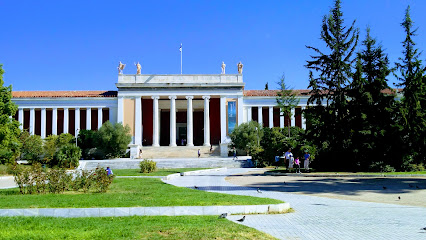
Syntagma Square
Explore Syntagma Square, Athens' vibrant civic center, where history, culture, and modernity converge in the heart of Greece's capital.
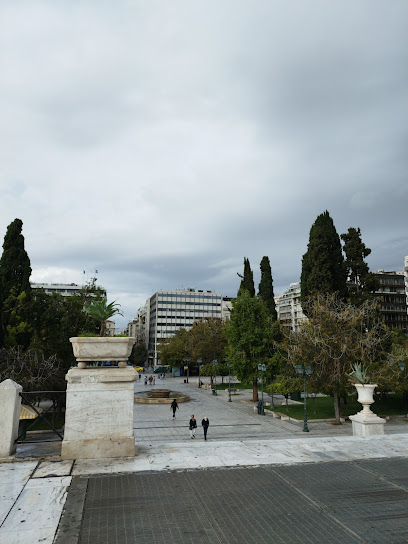
National Historical Museum - Old Parliament House
Explore Greece's history at the National Historical Museum in Athens, showcasing an extensive collection of artifacts and exhibits.
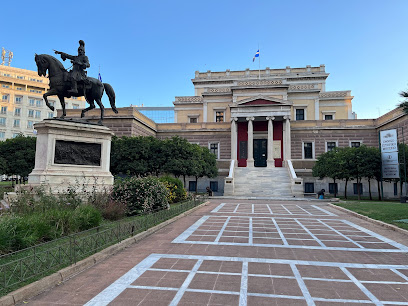
Μουσείο της Πόλεως των Αθηνών – Ίδρυμα Βούρου-Ευταξία
Explore the Museum of the City of Athens – a captivating journey through the rich history and vibrant culture of Athens, from ancient times to modernity.
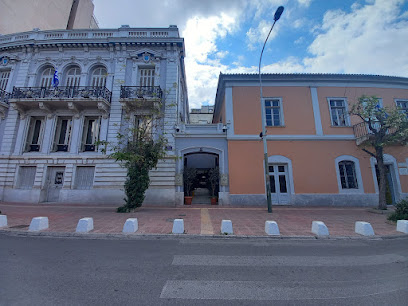
J. Eynard Monument
Explore the J. Eynard Monument in Athens, a serene tribute to history nestled in the lush National Garden, perfect for relaxation and reflection.

Mosaic
Explore Mosaic in Syntagma, Athens, a vibrant tourist attraction that showcases the city's artistic heritage and rich cultural history through stunning mosaics.
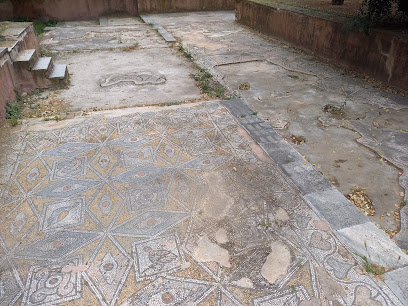
Essential places to dine
Tzitzikas kai Mermigas
Experience authentic Greek flavors at Tzitzikas kai Mermigas in Athens, where tradition meets creativity in every dish.
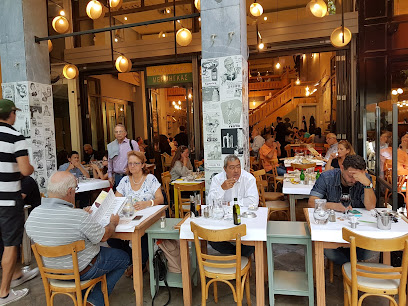
Aspro Alogo (i.e. White Horse) Traditional Greek Food
Discover authentic Greek cuisine at Aspro Alogo in Athens - where tradition meets flavor in every bite.
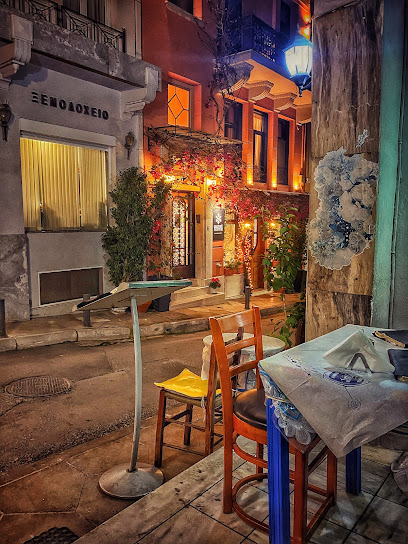
The Greco's Project
Experience authentic Greek cuisine at The Greco's Project in Athens – where tradition meets modern culinary artistry.
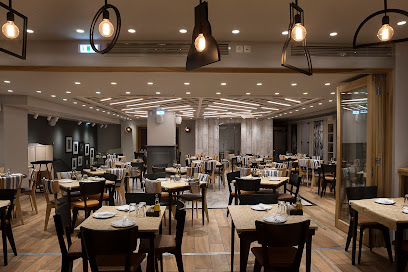
Nolan
Discover the exquisite fusion of Greek and Asian cuisines at Nolan, Athens' premier destination for food enthusiasts seeking innovation and flavor.
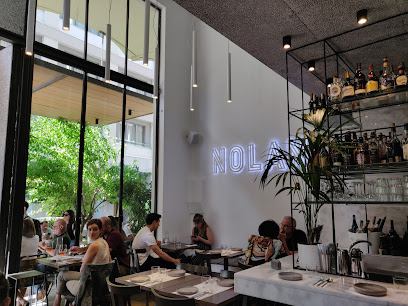
Athinaikon Restaurant
Experience authentic Greek cuisine in the heart of Athens at Athinaikon Restaurant - where tradition meets taste.
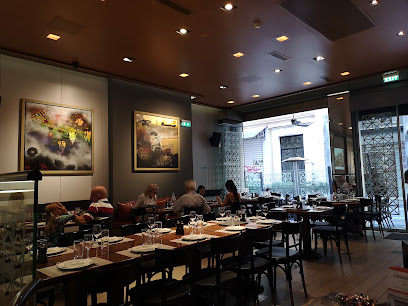
Ella Greek Cooking
Discover authentic Greek flavors at Ella Greek Cooking in Athens – where every dish tells a story.
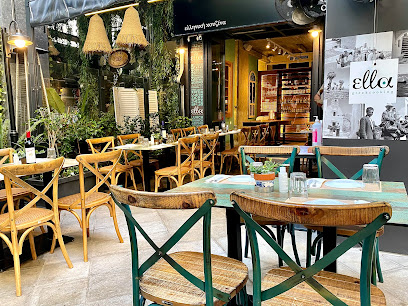
Athena 's Cook
Experience the essence of Greek cuisine at Athena's Cook, where tradition meets innovation in every dish.
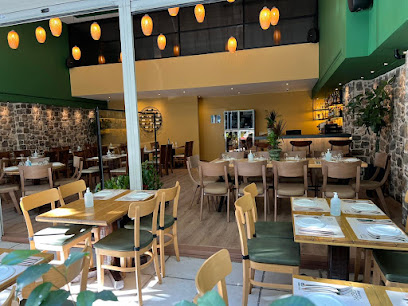
A Little Taste of Home Restaurant
Discover authentic Greek flavors at A Little Taste of Home Restaurant in Athens, where tradition meets modern hospitality.
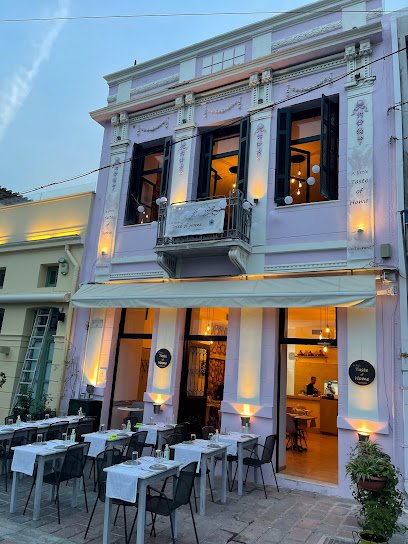
Cardinale Athens
Experience authentic Italian flavors at Cardinale Athens - where culinary excellence meets Athenian charm.
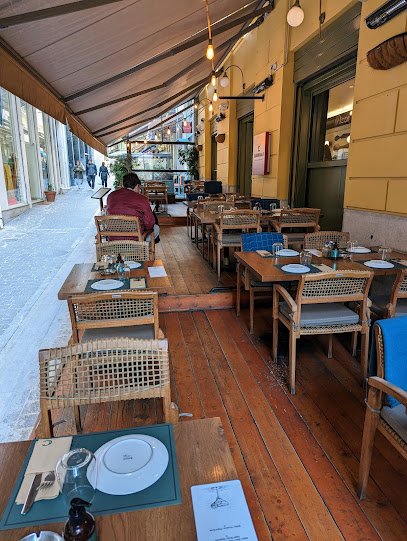
V1935 Roof Garden
Discover the exquisite flavors of Italy at V1935 Roof Garden while enjoying stunning views over Athens' historical skyline.
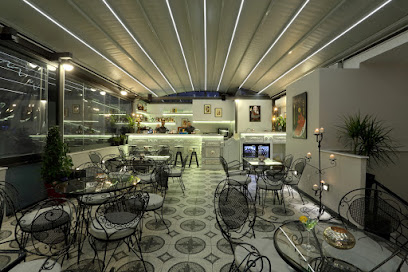
Markets, malls and hidden boutiques
Forget Me Not
Discover unique souvenirs and local crafts at Forget Me Not, the perfect place to find a piece of Athens to take home.
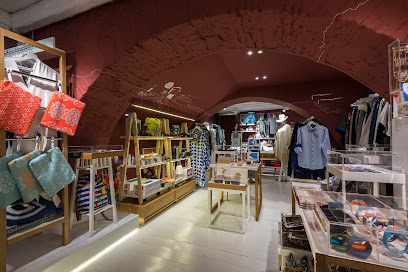
Chopard Boutique
Explore the luxurious Chopard Boutique in Athens for exquisite watches and jewelry, blending elegance with timeless craftsmanship.

ΑNAMESA CONCEPT STORE
Explore ANAMESA Concept Store in Athens, a unique blend of fashion, children's items, and artisanal coffee in an inviting atmosphere.

The Concept Store Art & Industry
Discover the charm of vintage fashion at The Concept Store Art & Industry in Athens - a treasure trove of unique clothing and accessories.
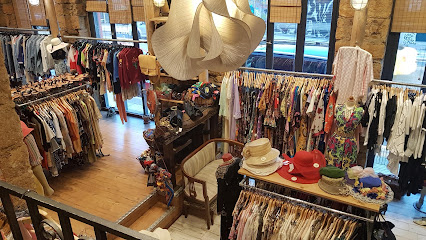
september
Discover unique fashion and accessories at September, a premier clothing store in the heart of Athens, blending local style with contemporary trends.
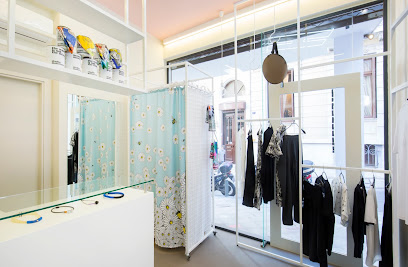
Polo Ralph Lauren Athens
Explore timeless elegance and luxury at Polo Ralph Lauren Athens, a premier clothing store in the heart of Syntagma Square.

Nomad Concept Store
Discover the Nomad Concept Store in Athens for unique gifts and stylish clothing that celebrate Greek artistry and craftsmanship.

gouri-gouri! - Syntagma
Explore Gouri-Gouri, the charming gift shop in Athens offering unique handmade treasures and local artisan crafts.
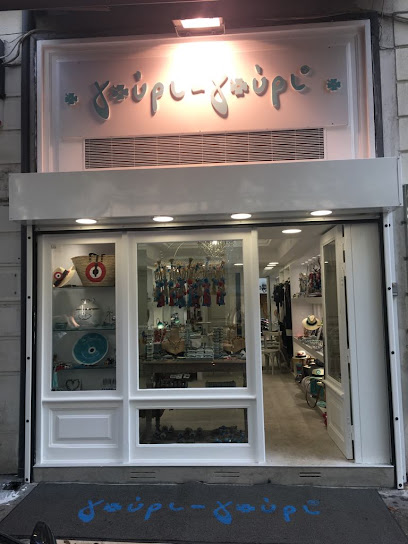
Pinko Boutique
Explore modern elegance at Pinko Boutique, a premier women's clothing store in Athens for stylish and trendy fashion finds.

calle aristidou 1
Discover the vibrant shopping and cultural experience at Calle Aristidou 1 in the heart of Athens, surrounded by rich history and local charm.
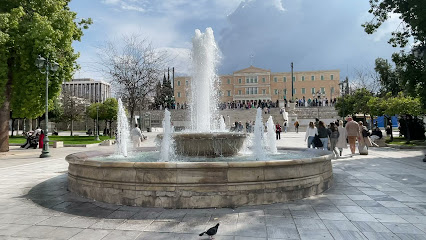
Essential bars & hidden hideouts
360 Cocktail Bar
Experience Athens like never before at 360 Cocktail Bar, where stunning views and unique cocktails create an unforgettable nightlife experience.
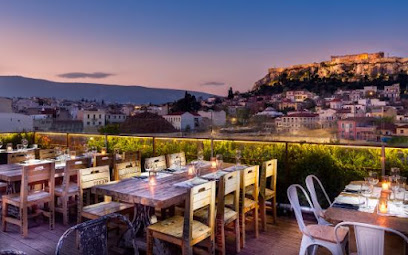
The Clumsies
Discover innovative cocktails and a vibrant atmosphere at The Clumsies, one of Athens' top cocktail bars, perfect for an unforgettable night out.
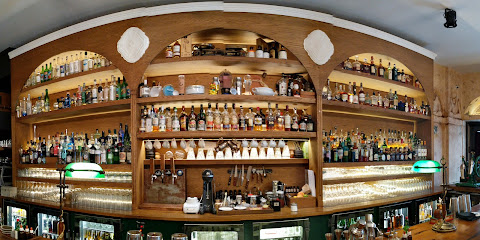
Drunk Sinatra
Dive into the vibrant nightlife of Athens at Drunk Sinatra, where music and cocktails create an unforgettable experience.
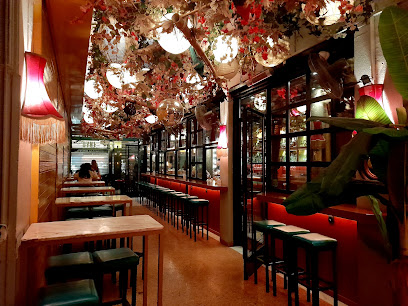
Baba au Rum
Discover Baba au Rum, Athens' premier cocktail bar known for innovative drinks and an electrifying atmosphere that captures the city’s nightlife essence.
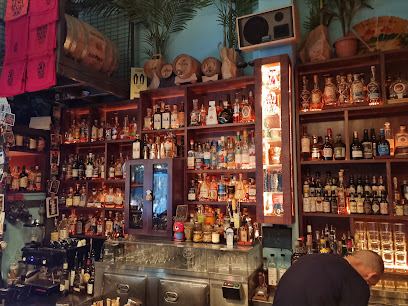
Tazza All day bistro & wine bar
Experience culinary excellence at Tazza All Day Bistro & Wine Bar in Athens, where every dish is a celebration of Greek flavors and fine wines.
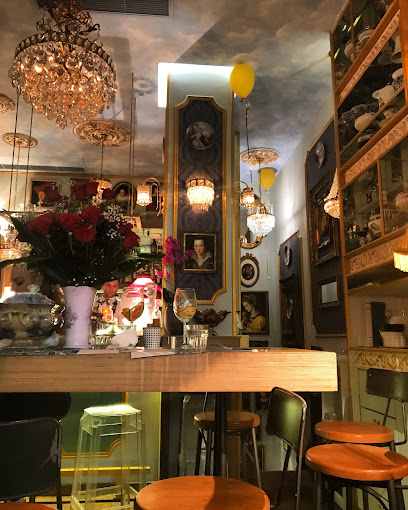
The 7 Jokers Coffee & Cocktail Bar
Discover the vibrant nightlife at The 7 Jokers Coffee & Cocktail Bar in Athens, where unique cocktails and a stylish ambiance await you.
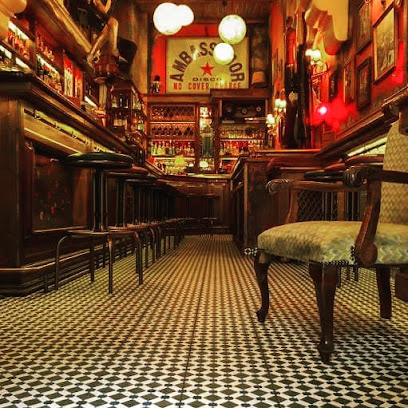
42 Barstronomy Athens
Experience innovative cocktails and Mediterranean delights at 42 Barstronomy, Athens' premier cocktail bar and restaurant.
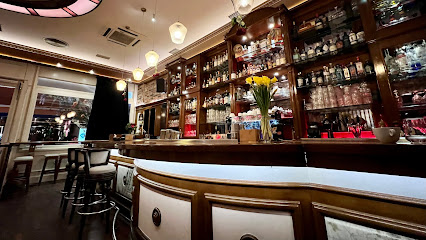
Kiki de grèce
Discover the essence of Greek viticulture at Kiki de Grèce, a must-visit wine bar in the heart of Athens.
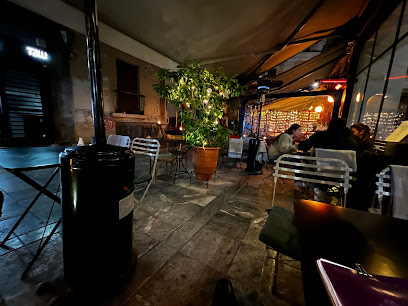
THE BAR IN FRONT OF THE BAR
Discover the vibrant atmosphere of The Bar in Front of the Bar in Athens, where unique cocktails and a lively ambiance await.
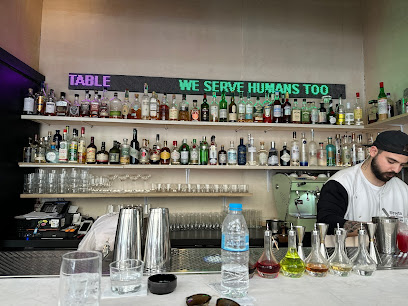
Barreldier
Discover the vibrant nightlife of Athens at Barreldier, where quality drinks and a lively atmosphere await every visitor.
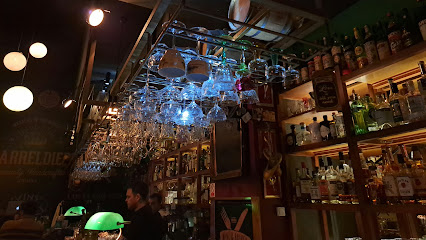
Local Phrases
-
- HelloΓεια σας
[Yia sas] - GoodbyeΑντίο
[Adio] - YesΝαι
[Ne] - NoΌχι
[Ochi] - Please/You're welcomeΠαρακαλώ
[Parakalo] - Thank youΕυχαριστώ
[Efharisto] - Excuse me/SorryΣυγνώμη
[Signomi] - How are you?Πώς είστε;
[Pos iste?] - Fine. And you?Καλά. Εσείς;
[Kala. Esis?] - Do you speak English?Μιλάτε αγγλικά;
[Milate anglika?] - I don't understandΔεν καταλαβαίνω
[Den katalaveno]
- HelloΓεια σας
-
- I'd like to see the menu, pleaseΘα ήθελα να δω το μενού, παρακαλώ
[Tha ithela na do to menou, parakalo] - I don't eat meatΔεν τρώω κρέας
[Den troo kreas] - Cheers!Υγεία!
[Ygeia!] - I would like to pay, pleaseΘα ήθελα να πληρώσω, παρακαλώ
[Tha ithela na plirosso, parakalo]
- I'd like to see the menu, pleaseΘα ήθελα να δω το μενού, παρακαλώ
-
- Help!Βοήθεια!
[Voithia!] - Go away!Φύγε!
[Fige!] - Call the Police!Καλέστε την Αστυνομία!
[Kaleste tin Astynomia!] - Call a doctor!Καλέστε ένα γιατρό!
[Kaleste ena yatro!] - I'm lostΈχω χαθεί
[Eho hathi] - I'm illΕίμαι άρρωστος
[Eimai arrostos]
- Help!Βοήθεια!
-
- I'd like to buy...Θα ήθελα να αγοράσω...
[Tha ithela na agoraso...] - I'm just lookingΑπλά κοιτάω
[Apla kitao] - How much is it?Πόσο κοστίζει;
[Poso kostizi?] - That's too expensiveΑυτό είναι πολύ ακριβό
[Afto ine poli akribo] - Can you lower the price?Μπορείτε να χαμηλώσετε την τιμή;
[Mporeite na hamilosete tin timi?]
- I'd like to buy...Θα ήθελα να αγοράσω...
-
- What time is it?Τι ώρα είναι;
[Ti ora ine?] - It's one o'clockΕίναι μία ώρα
[Ine mia ora] - Half past (10)Μισή (10)
[Misi (10)] - MorningΠρωί
[Proi] - AfternoonΑπόγευμα
[Apoyevma] - EveningΒράδυ
[Vradi] - YesterdayΧθες
[Hthes] - TodayΣήμερα
[Simera] - TomorrowΑύριο
[Avrio] - 1Ένα
[Ena] - 2Δύο
[Dyo] - 3Τρία
[Tria] - 4Τέσσερα
[Tessera] - 5Πέντε
[Pente] - 6Έξι
[Exi] - 7Εφτά
[Efta] - 8Οκτώ
[Okto] - 9Εννέα
[Ennea] - 10Δέκα
[Deka]
- What time is it?Τι ώρα είναι;
-
- Where's a/the...?Πού είναι ένα/το...;
[Pou ine ena/to...?] - What's the address?Ποια είναι η διεύθυνση;
[Poia ine i diefthinsi?] - Can you show me (on the map)?Μπορείτε να μου δείξετε (στο χάρτη);
[Mporeite na mou deksete (sto charti)?] - When's the next (bus)?Πότε είναι το επόμενο (λεωφορείο);
[Pote ine to epomeno (leoforeio)?] - A ticket (to ....)Ένα εισιτήριο (για...)
[Ena isitirio (gia...)]
- Where's a/the...?Πού είναι ένα/το...;
History of Syntagma
-
Syntagma Square, or Constitution Square, was established in the 19th century, following the establishment of the modern Greek state. It was named after the 1843 Constitution, which was granted by King Otto in response to popular demands for political reform. This pivotal moment in Greek history was reflected in the square's design, which became a central hub for political gatherings and public demonstrations.
-
The Greek Parliament building, originally the royal palace, was constructed between 1836 and 1842. Its transformation from a royal residence to the seat of the Parliament marked a significant shift in Greek governance. The building stands as a testament to the evolution of democracy in Greece, with Syntagma Square serving as the backdrop for numerous historic events, including parliamentary debates and national celebrations.
-
Syntagma Square was the epicenter of the 1909 military coup, which aimed to address political corruption and inefficiencies in the government. The coup was initiated by the so-called 'Young Turks' of the Greek Army, leading to a significant change in political power dynamics. This event underscored the square's role as a focal point for political action and unrest throughout Greek history.
-
In the wake of Greece's financial crisis, Syntagma Square became synonymous with mass protests against austerity measures imposed by the government and international creditors. Starting in 2010, demonstrators gathered in the square, creating a vibrant atmosphere of activism that drew both national and international attention. The protests highlighted the square's ongoing significance as a space for civic engagement and public discourse.
-
Today, Syntagma Square remains a vital cultural and social hub in Athens. The square hosts various events, including festivals and public celebrations, while surrounded by significant landmarks, such as the National Garden and the Hilton Hotel. Its central location makes it a popular meeting point for locals and tourists alike, reinforcing its status as a symbol of modern Greek identity and civic life.
Syntagma Essentials
-
Syntagma is centrally located in Athens, making it easily accessible from various neighborhoods. The Syntagma Metro Station is on Line 3 (the Blue Line) and connects directly to the Athens International Airport, with a journey time of about 40 minutes. From other neighborhoods, you can use Metro Line 2 (the Red Line) to reach Syntagma. Buses and trolleys also service the area, with many routes passing through the central square.
-
Syntagma is best explored on foot, as many attractions are within walking distance. The Syntagma Metro Station provides access to the greater Athens metro system. Buses and trolleys are readily available for longer distances, with stops conveniently located near major sights. For a more local experience, consider renting a bicycle through one of the city's bike-sharing programs, which can be a fun way to navigate the vibrant streets.
-
Syntagma is generally safe for tourists; however, standard precautions should be taken. Avoid walking alone late at night in less crowded areas. Petty crimes, such as pickpocketing, can occur in crowded places. Areas around Omonia Square, while not far from Syntagma, are known for higher crime rates and should be approached with caution.
-
In case of an emergency, dial 112 for immediate assistance from police, fire, or medical services. Syntagma has several hospitals and clinics nearby, including the private Hygeia Hospital and the public KAT Hospital. It is recommended to have travel insurance that covers medical emergencies. For minor health issues, you can find pharmacies throughout the neighborhood.
-
Fashion: Do dress respectfully, especially when visiting churches or official sites. Avoid revealing clothing. Religion: Do respect local customs; if visiting a church, ensure your shoulders and knees are covered. Public Transport: Do give your seat to elderly passengers. Don’t eat or drink on public transport. Greetings: Do greet locals with a friendly 'Kalimera' (Good morning). Eating & Drinking: Do try local tavernas for authentic Greek cuisine. Don’t refuse food or drink offered by locals, as it is considered impolite.
-
To experience Syntagma like a local, visit the nearby National Garden for a peaceful retreat from the hustle and bustle. Try to catch the Changing of the Guard ceremony at the Tomb of the Unknown Soldier, which takes place every hour. For dining, seek out family-run tavernas rather than tourist spots for authentic Greek dishes. Additionally, consider visiting local markets for fresh produce and unique Greek products.
Nearby Cities to Syntagma
-
Things To Do in Nafplio
-
Things To Do in Delphi
-
Things To Do in Lamia
-
Things To Do in Mykonos
-
Things To Do in Volos
-
Things To Do in Kalamata
-
Things To Do in Patras
-
Things To Do in Olympia
-
Things To Do in Larissa
-
Things To Do in Santorini
-
Things To Do in Pyrgos
-
Things To Do in Zakynthos
-
Things To Do in Meteora
-
Things To Do in Chania
-
Things To Do in Katerini











